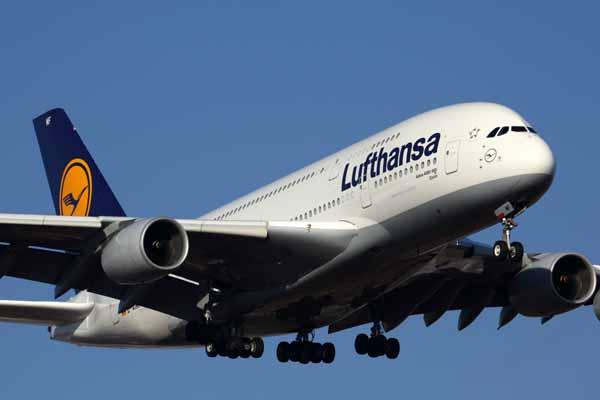
FRANKFURT—Lufthansa warned June 17 that it may have to file for a protective shield insolvency restructuring process if an extraordinary shareholder meeting does not approve the proposed €9 billion ($10.1 billion) state-aid package on June 25.
Such a filing would have to be made “a few days after” the event if no other solution is found immediately.
The stark warning comes after the airline’s new largest shareholder Heinz-Hermann Thiele indicated in an interview that he may not agree to the package at the meeting next week. Thiele became a shareholder just before the COVID-19 pandemic sent airlines including Lufthansa deep into crisis mode and has since raised his stake to “above 15%,” as he revealed in an interview with Frankfurter Allgemeine Zeitung (FAZ), a German daily.
Lufthansa needs the consent of two thirds of shareholders present at the meeting. At the last ordinary AGM, held virtually on May 5, only 33% of the capital was present. The company expects less than 50% of shareholders to be present on June 25, giving Thiele effectively the power to block any deal. Above 50%, a simple majority would suffice. The airline urged investors to make use of their voting rights and back the planned deal.
79-year old Thiele is the majority owner of rail and automotive braking systems supplier Knorr-Bremse and rail technology company Vossloh and is estimated to have accumulated personal wealth in excess of $15 billion. In the interview, Thiele criticized what he fears will be excessive government influence on Lufthansa. He criticized CEO Carsten Spohr for not having negotiated the rescue package “intensively enough.”
Lufthansa and the German government agreed on a €9 billion bail-out which includes a silent participation of €5.5 billion and state-backed loans of €3.5 billion. Importantly, the government’s economic stabilization fund (WSF) is investing into a 20% stake in the airline and has an option to boost it to 25% plus one stake to fend off hostile takeovers. WSF also has a right of refusal for two members of Lufthansa’s board of directors. However, as part of the deal it agreed that it will not make use of voting rights unless in exceptional circumstances.
Lufthansa is fast running out of liquidity. It is currently burning around €800 million per month and is preparing an expensive network restart that is planned to see Lufthansa return to 40% of pre-coronavirus levels by September. With no aid forthcoming, an insolvency filing is expected for late June.
A protective shield is a special form of insolvency in which management continues to run the company under the supervision of an administrator. Similar to the U.S. chapter 11 proceedings, it could shed debt and pension liabilities, reject aircraft leases and renegotiate labor contracts. Investors are likely to lose everything as subordinate creditors in the process, all tickets purchased before the filing would become worthless. The airline would still need new financing during the restructuring that is all but certain to require some form of government backing given the risks involved and new investors at the end of the process. Operations could continue, provided enough funding is secured.
Thiele indicated that he would like to start negotiations directly with the government, but it is unclear that Berlin would accept such a move, as a matter of principle. The entrepreneur said insolvency should “not be ruled out. Lufthansa’s existence would not end the next day. New opportunities could emerge from it even though risk will grow.”
Separately, the airline is negotiating new labor agreements with its unions and targets a June 22 deadline. The airline said it needs to cut 22,000 of the 130,000 positions as it adjusts to a future of being a smaller company, but it is still trying to avoid mandatory redundancies through broad acceptance of part-time work and cost reductions. Historically, it has had a tense relationship with pilot union Vereinigung Cockpit and cabin crew union UFO. There is also political pressure on the airline from parts of the government and the opposition to avoid layoffs when it is about to receive billions in state money.






Comments
Jens Hoeg, Denmark